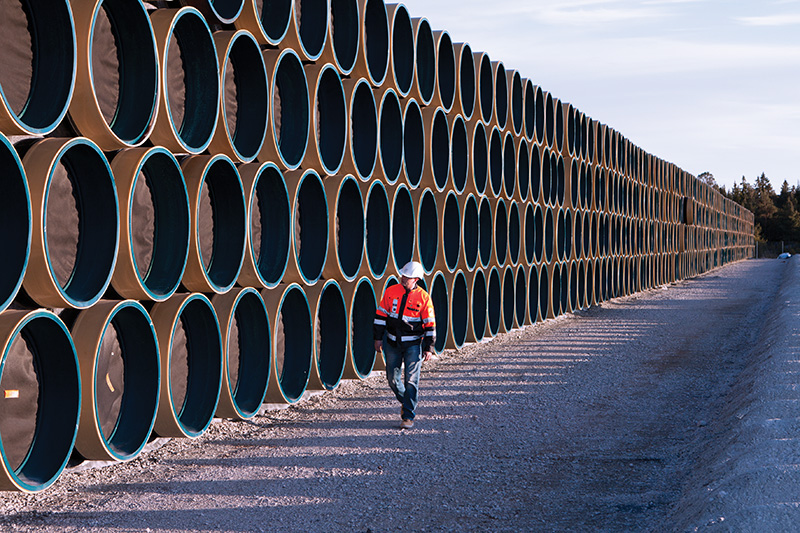Italy, Germany, Austria Sign Letter to Support Hydrogen Pipeline
(Reuters) — Energy ministries of Italy, Germany and Austria have signed a joint letter of support for the development of a hydrogen-ready pipeline between North Africa and Europe, Italian gas grid operator Snam said on Tuesday.
Snam, one of the companies behind the project, said the three countries expressed their backing for related infrastructure projects to obtain the status of European Union Project of Common Interest (PCI), which would give them access to certain EU funds and fast-tracked permits.
RELATED: Germany, Austria, Italy Urge EU to Back Hydrogen Projects
Europe is attempting to scale up its production and imports of renewable hydrogen - a fuel manufactured using renewable electricity, which countries are betting on to cut fossil fuel use in industrial processes like steel-making.
The so-called SouthH2 Corridor would connect North Africa, Italy, Austria and Germany, allowing renewable hydrogen produced in the Southern Mediterranean to reach European consumers, Snam said.
The 3,300-km project is led by four major European transmission system operators (TSOs): Snam, Trans Austria Gasleitung (TAG), Gas Connect Austria (GCA) and bayernets in Germany.
With a hydrogen import capacity of more than 4 million tonnes per annum (Mtpa) from North Africa, the pipeline could deliver 40% of an EU hydrogen import target set for 2030 and could be operational by as early as that year, Snam said.
Related News
Related News

- Enbridge Plans 86-Mile Pipeline Expansion, Bringing 850 Workers to Northern B.C.
- Intensity, Rainbow Energy to Build 344-Mile Gas Pipeline Across North Dakota
- Energy Transfer to Build $5.3 Billion Permian Gas Pipeline to Supply Southwest
- Enbridge Sees High Demand to Expand 593-Mile Canada-to-U.S. Gulf Oil Pipeline
- Strike Pioneers First-of-Its-Kind Pipe-in-Pipe Installation on Gulf Coast with Enbridge
- A Systematic Approach To Ensuring Pipeline Integrity
- 275-Mile Texas-to-Oklahoma Gas Pipeline Enters Open Season
- LNG Canada Start-Up Fails to Lift Gas Prices Amid Supply Glut
- Strike Pioneers First-of-Its-Kind Pipe-in-Pipe Installation on Gulf Coast with Enbridge
- Enbridge Sees High Demand to Expand 593-Mile Canada-to-U.S. Gulf Oil Pipeline





Comments